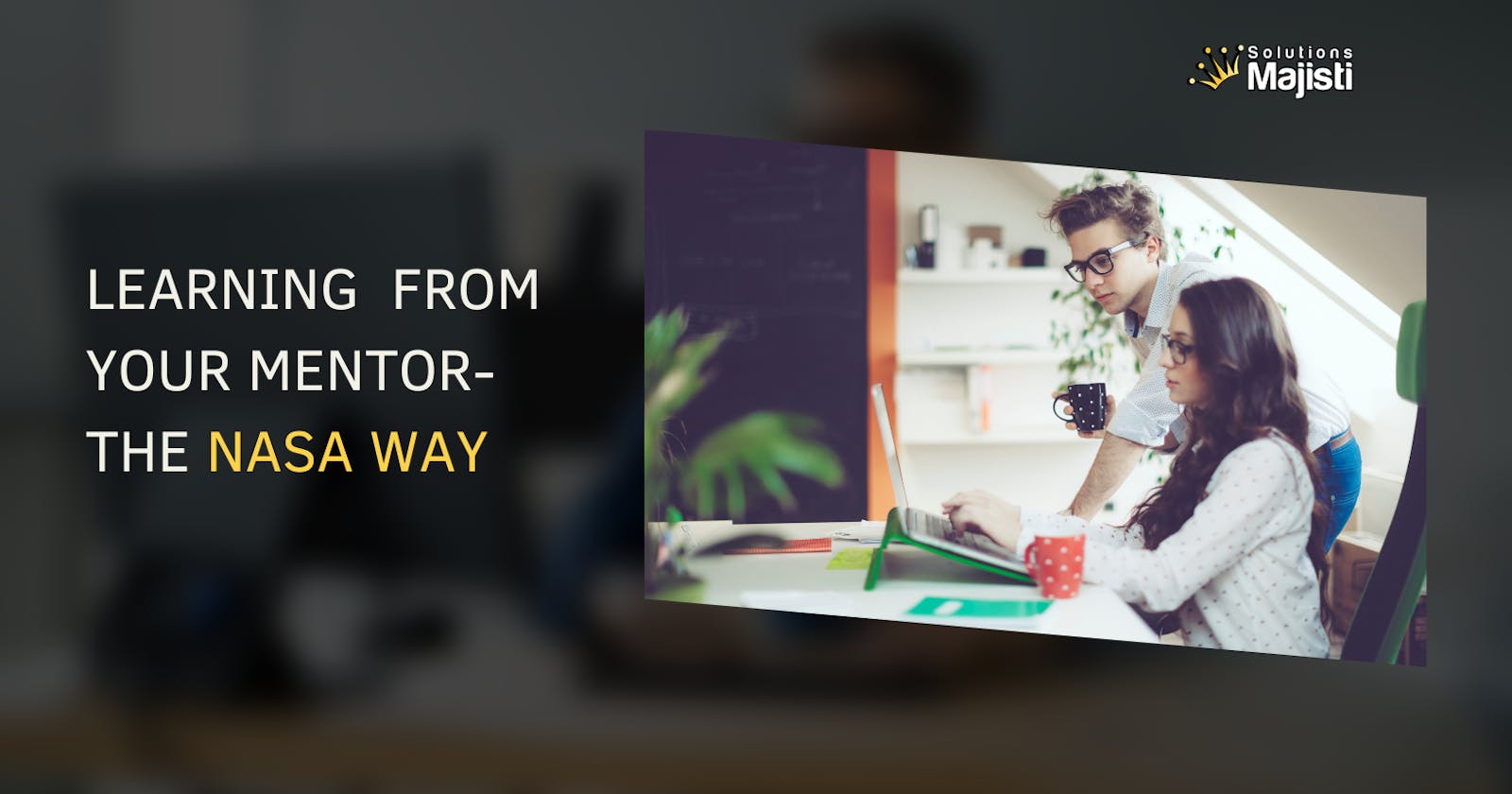NASA, renowned for its groundbreaking achievements in space exploration, attributes a significant part of its success to its strong commitment to mentorship. The agency firmly believes in providing guidance and support to every programmer through a structured mentorship program. NASA's mentorship principles are deeply ingrained in its pursuit of excellence and continuous improvement. This article explores how NASA implements these principles to create a culture of learning and development.
Create an open discussion
The mentoring relationship starts with an open conversation about the mentee's goals and what they hope to achieve. In cases where a mentee asks someone to be their mentor, a condition may be set - the mentor agrees to provide guidance on the condition that the mentee offers feedback on an area where they believe the mentor can enhance their skills or knowledge. This approach is often referred to as "the reciprocal approach."
If the mentor's formal office setting feels too rigid, they may opt for a more relaxed environment like a coffee shop to facilitate more comfortable and informal discussions.
"In learning, you will teach and in teaching, you will learn" -Phil Collins
Emphasize Your Thought Process
Being an expert does not only mean knowing but it also involves your thought-process as well. These skills show your ability to diagnose issues, assess the probable root cause and make complicated decision calls.
A mentor would learn the art of systematic thinking when tackling technical problems. This skill involves following a systematic way of diagnosing and understanding the problem and knowing when a course change is needed. Mentors, in turn, impart this skill to their protégés, teaching them how to explore diverse lines of thinking when confronted with challenges.
Practice indeed makes perfect
Like learning how to play piano, ping-pong, or just anything, skills will only develop through practice. The same goes for good critical thinking skills. Mentors helped their protégés by asking probing inquiries that helped them sort out feelings and facts rather than giving them suggestions. By shifting their way of thinking about the decision, mentors can lure them away from poor choices.
Don’t ask your mentor what to do
NASA mentees don't ask their mentors to simply tell them what to do. Instead, they engage in discussions where they ask questions like, "What factors should I take into account? How do scientific principles relate to this?" They also request their mentors' guidance in making decisions using a similar questioning approach. In response, mentors inquire about the mentees' options, assumptions, the applicability of scientific principles, and alternative approaches. Although it may seem like they're deviating from the main issue, the objective is to broaden the mentees' thinking rather than seeking a quick solution.
Observe how your mentor thinks
Pick up on the little hints and tips they drop to help you understand things better. When you're talking about a problem that's important to you, what your mentor says and cares about becomes way more meaningful than just listening to stories about their old projects.
Takeaway
Being a proactive mentee not only benefits your personal growth but also equips you with the expertise to be an effective mentor in the future. Instead of seeking quick solutions, prioritize open discussions and a deep understanding of you and your mentor's thought processes.


